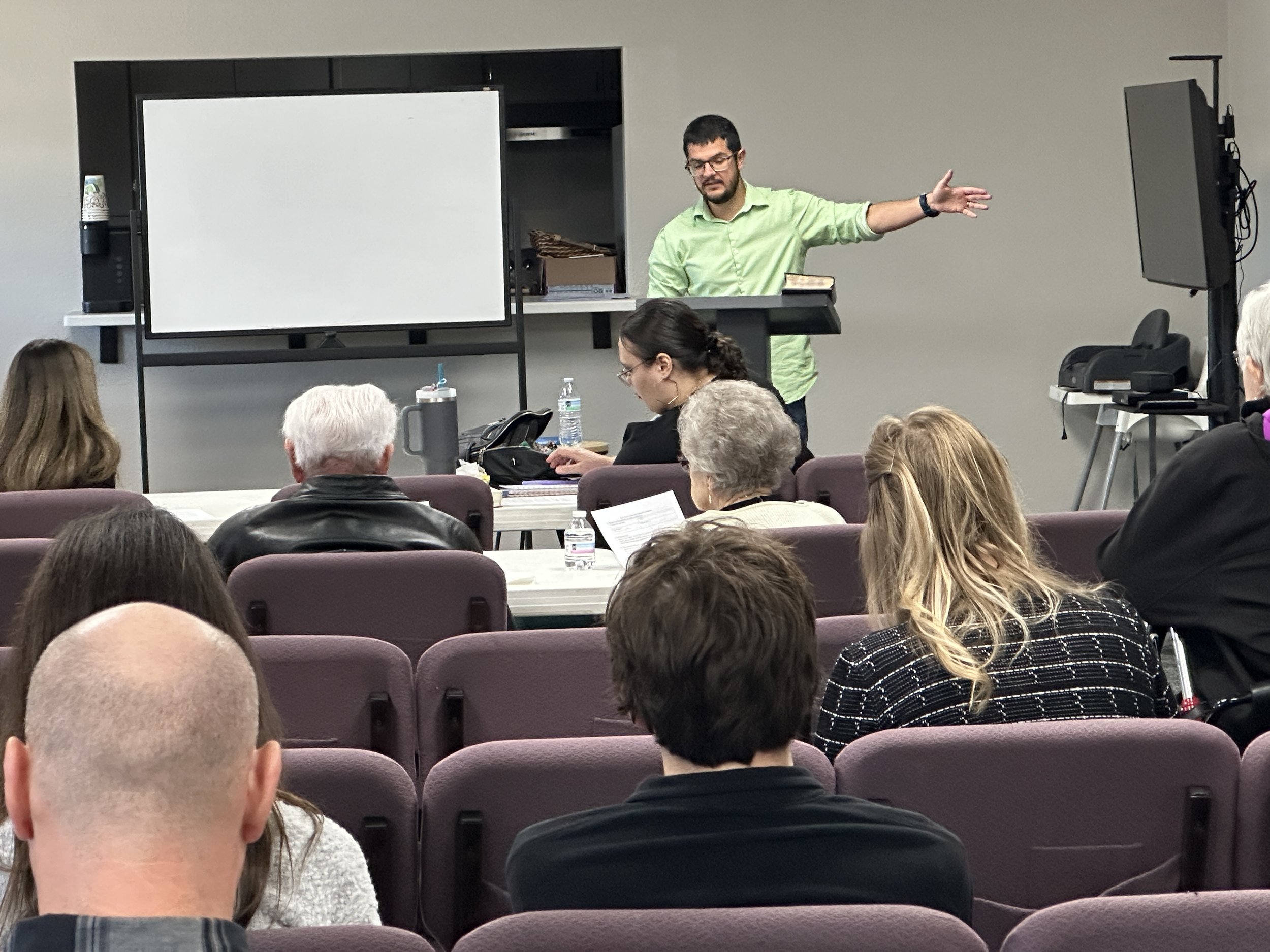
We exist to glorify God by making and equipping disciples for the work of the ministry in Chandler and beyond.
Loving and Glorifying God
The greatest command is that we are to love God with everything that we are (Matthew 22:36-40; Deuteronomy 6:4-5). We are also supposed to glorify God in all that we do (1 Corinthians 10:31). Our goal in life is to love and glorify God. If the love of God and the glory of God are what guide us then all of our other priorities will fall into place. When we love God this will naturally cause us to love others (1 John 5:1-3).
Authority of Scripture
The Bible is God’s truthful word to His people that reveals His character and nature. It also provides all that the believer needs for life and godliness (2 Timothy 3:15-17). The Bible has authority because it is the Word of God and not the word of man (2 Peter 1:20-21; 1 Thessalonians 4:8). The Bible reveals the beauty and holiness of God and is God’s gracious gift to His people. The authority of the Bible is not an abstract concept that we merely affirm. Since the Bible has authority it means that we do not merely read the Bible, but that we seek to live out its message and commands (James 1:22-25; Deuteronomy 4:1-8).
Expository Preaching
Pastors are exhorted to declare the whole counsel of God’s word and to always preach the Word of God (Acts 20:27; 2 Timothy 4:2). We are committed to preaching through books of the Bible and books from everywhere in the Bible. We do not want to skip over difficult texts or avoid any section of the Bible. Expository preaching focuses on the ideas of the texts being preached and seeks to apply those ideas in a faithful way in our modern context. Good preaching should also be simple and present the Gospel clearly. Faithful preaching provides a model for how the believer should approach and read the Bible.

Elder-Led Congregationalism
Christ is the head of the church and the church is His body and bride (Colossians 1:18; Ephesians 5:29-31). The church is composed of all of the saints (the congregation) and there are two offices in the church: deacons and elders (Philippians 1:1). The New Testament teaches a plurality of elders within the local church (Acts 20:17; Titus 1:5). The words pastor, overseer, and elder are used interchangeably throughout the New Testament and are the same office (Acts 20; Titus 1:5-7; 1 Peter 5:1-2). Pastors teach, lead, and equip the saints for the work of the ministry (Ephesians 4:11-12). Deacons serve the church in an exemplary way (1 Timothy 3:8-13). The work of the ministry is done by all of the saints and every member of the congregation uses his or her spiritual gifts for the glory of God, the common good of the church, and the spread of the Gospel (1 Corinthians 12:4-11).
Bold Evangelism
Jesus gave His disciples the Great Commission telling them that they were to make disciples of all nations (Matthew 28:16-20). The word bold is used to describe the preaching of the Good News by the Apostles in the book of Acts (Acts 4:13, 9:28, 28:31). We also want to boldly proclaim the Gospel to a world that is broken and separated from God. By bold we do not mean that we will share the Gospel with arrogance or superiority, but that we are not ashamed of the Gospel because it is the power of God for salvation (Romans 1:16). We do not want to shrink away from sharing any part of the Gospel and we want to reach Chandler, AZ for Jesus Christ.
Deep Discipleship
In the Great Commission Jesus says that new disciples are supposed to be taught to observe all that Jesus commanded (Matthew 28:20). Christians are supposed to be presented mature in Christ (Colossians 1:28). This is done by pastors equipping and teaching the saints, the saints speaking the truth in love to each other, and the whole body being built up in love (Ephesians 4:11-16). Discipleship is accomplished through deep study of the Bible, a commitment to prayer, a loving community, and living lives together in the Gospel of Jesus Christ.

Unceasing Prayer
God has called His people to pray without ceasing (1 Thessalonians 5:17). We are a church marked by both corporate and private prayer. Our meetings together are marked by praise, prayer, and petition to God (1 Timothy 2:1-2). The prayers of God’s people are powerful and effective (James 5:12-18). We pray to commune with God and for God’s kingdom to come and will to be done in our community and to the ends of the earth (Matthew 6:7-13).
Corporate Worship
We are not here to perform, but we gather to worship the Lord together. Worship is more than just the singing of songs. Our gatherings are characterized by the public reading of Scripture, prayer, singing, giving, serving, observing the ordinances, and the preaching of the word (Acts 2:42-43). God’s Spirit has gifted each of us with spiritual gifts that are indispensable for both our corporate gathering and our ministry of the spread of the Gospel. As Christians our spiritual service of worship is to present ourselves as living sacrifices to God as people who are transformed by His Spirit and not conformed to this world (Romans 12:1-2).
Engaging Community
The church is a family. We are adopted into God’s family through the death and resurrection of Jesus Christ (Ephesians 2:17-22). We gather together to worship God and to edify each other. And as a family we love and care for each other (Titus 2:1-8). We seek to meet each other's needs and to do good to all people, especially those in God’s family (Acts 2:44-47; Galatians 6:10). As a church with the word community in our name we are a church that wants to reach our community with the Gospel and see them become part of God’s family and ours.




